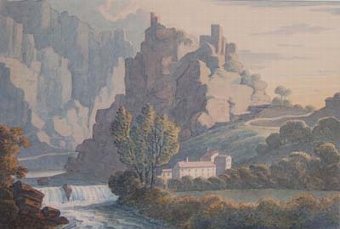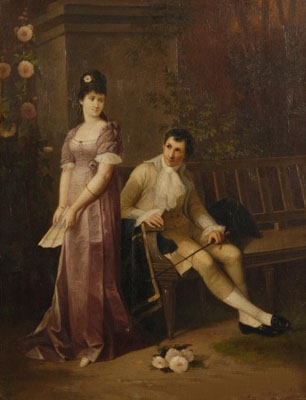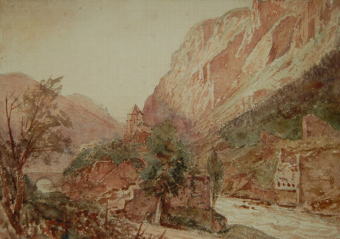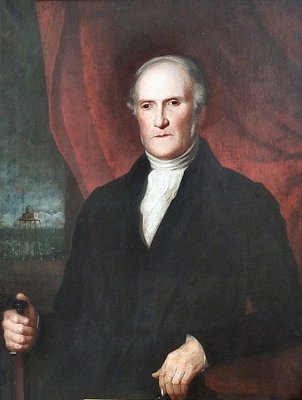the protector dictating the letter to john milton, 1655
- View other items in:
- antiques interior design modern and vintage
- other interior design
artware ltd
Enquire about this antique
Artware Ltd has 565 antiques for sale.
click here to see them all
Engraved by John Sartain
The historical scene portrays the occaission when Cromwell dictated a letter to Milton for the Duke of Savoy to urge him to stop the persecution of the Protestants of Piedmont, 1655.
The chiefs of the new republic saw the importance of securing the services of a distinguished man who had so powerfully spoken out in favour of their tremendous act. In March 1649, accordingly, Milton was offered at the age of 40, and accepted, the secretary ship for foreign tongues to the council of state of the new Commonwealth. The council held its sittings for the first few weeks in Derby House, close to Whitehall, but afterwards regularly in Whitehall itself, he removed at once to temporary lodgings at Charing Cross. In the very first meetings of council which Milton attended he must have made personal acquaintance with President Bradshaw, Fairfax, Cromwell himself, Sir Henry Vane, Whitelocke, Henry Marten, Haselrig, Sir Gilbert Pickering and the other chiefs of the council and the Commonwealth.His special duty was the drafting in Latin of letters sent by the council of state, or sometimes by the Rump Parliament, to foreign states and princes, with the examination and translation of letters in reply. As Latin was the language employed in the written diplomatic documents, his post came to be known as the secretaryship for foreign tongues. In that post, however, his duties at first, were very light in comparison with those of his official colleague, Walter Frost, who had to be present in every meeting of the council, keeping the minutes, and conducting all the general correspondence, Milton''s presence was required only when some piece of foreign business turned up. The council looked to him for everything in the nature of literary vigilance and literary help in the interests of the struggling Commonwealth. He was employed in the examination of suspected papers, and in interviews with their authors and printers; and he executed several great literary commissions expressly entrusted to him by the council. The first of these was his pamphlet entitled Observations on the Articles of Peace (between Ormonde and the Irish). It was published in May 1649, and was in defence of the republic against a complication of Royalist intrigues and dangers in Ireland.
About the end of 1651 Milton left his official rooms in Whitehall for a "garden house" he had taken on the edge of St. James''s Park in what was then called Petty France, Westminster, but is now York Street. Milton had now more to do in the special work of his office, in consequence of the increase of correspondence with foreign powers. But he had for some time been in ailing health; and a dimness of eyesight which had been growing upon him gradually for ten years had been settling rapidly, since his labour over the answer to Salmasius, into total blindness. Before or about May 1652, when he was but in his forty-fourth year, his blindness became total, and he could go about only with some one to lead him. Hence a rearrangement of his secretarial duties. Such of these duties as he could perform at home, or by occasional visits to the Council Office near, he continued to perform; but much of the routine work was done for him by an assistant, a well-known German, George Rudolph Weckherlin, succeeded later by Philip Meadows and, eventually, by Andrew Marvell. Precisely to this time of a lull in Milton''s secretaryship on account of his ill-health and blindness we have to refer his two great companion sonnets "To the Lord General Cromwell " and "To Sir Henry Vane the Younger."
In 1652 his only son died, and his wife died in 1654, just after she had given birth to his third daughter, Deborah. He had recovered sufficiently to resume his secretarial duties; and the total number of his dictated state letters for the single year 1652 is equal to that of all the state letters of his preceding term of secretaryship put together. In December 1653 Cromwell''s formal sovereignty began under the name of the Protectorate, passing gradually into more than kingship. This change from Government by the Rump and its council to government by a single military lord protector and his council was regarded by many as treason to the republican cause, and divided those who had hitherto been the united Commonwealth''s men into the "Pure Republicans", represented by such men as Bradshaw and Vane, and the "Oliverians", adhering to the Protector. Milton, whose boundless admiration of Cromwell had shown itself already in his Irish tract of 1649 and in his recent sonnet, was recognized as one of the Oliverians. He remained in Oliver''s service and was his Latin secretary through the whole of the Protectorate. For a while, indeed, his Latin letters to foreign states in Cromwell''s name were but few -- Thurloe, as general secretary, officiated as Oliver''s right-hand man in everything, with a Philip Meadows under him as deputy for the blind Milton in foreign correspondence and translations.
From about the date of the publication of the Defensio secunda to the beginning of 1655 the only specially literary relics of Milton''s life are his translations of Ps. I-VIII in different metres, done in August 1654, his translation of Horace''s Ode, i. 5, done probably about the same time, and two of his Latin "Familiar Epistles." The most active time of his secretaryship for Oliver was from April 1655 onwards. In that month, in the course of a general revision of official salaries under the Protectorate, Milton''s salary was reduced by nearly a third with a kind of redefinition of his office, recognizing it, we may say, as a Latin secretaryship extraordinary. Philip Meadows was to continue to do all the ordinary Foreign Office work, under Thurloe''s inspection; but Milton was to be called in on special occasions. Hardly was the arrangement made when a signal occasion did occur. In May 1655 all England was horrified by the news of the massacre of the Vaudois Protestants (Waldenses) by the troops of Emanuele II, duke of Savoy and prince of Piedmont, in consequence of their disobedience to an edict requiring them either to leave their native valleys or to conform to the Catholic religion. Cromwell and his council took the matter up with all their energy; and the burst of indignant letters on the subject despatched in that month and the next to the duke of Savoy himself, Louis XIV of France, Cardinal Mazarin, the Swiss cantons, the states-general of the United Provinces, and the kings of Sweden and Denmark, were all by Milton. His famous sonnet "On the Late Massacre in Piedmont" was his more private expression of feeling on the same occasion. This sonnet was in circulation, and the case of the Vaudois Protestants was still occupying Cromwell, when, in August 1655, there appeared the last of Milton''s Latin pamphlets. It was his Pro se defensio in answer to an elaborate self-defense which More had put forth on the Continent since Milton''s attack on his character. In that year also appeared Milton''s Scriptum domini protectoris... contra hispanos.
Through the rest of Cromwell''s Protectorate, Milton''s life was of comparatively calm tenor. He was in much better health than usual, bearing his blindness with courage and cheerfulness; he was steadily busy with important dispatches to foreign powers on behalf of the Protector, then in the height of his great foreign policy; and his house in Petty France seems to have been, more than at any previous time since the beginning of his blindness, a meeting-place for friends and visitors and a scene of pleasant hospitalities. Some of his greatest dispatches for Cromwell, including letters, of the highest importance, to Louis XIV, Mazarin and Charles Gustavus of Sweden, belong to the year 1658. There is, unfortunately, no direct record to show what Cromwell thought of Milton; but there is ample record of what Milton thought of Cromwell. "Our chief of men", he had called Cromwell in his sonnet of May 1652; and the opinion remained unchanged. He thought Cromwell the greatest and best man of his generation, or of many generations; and he regarded Cromwell''s assumption of the supreme power, and his retention of that power with a sovereign title, as no real suppression of the republic, but as absolutely necessary for the preservation of the republic, and for the safeguard of the British Islands against a return of the Stuarts. Cromwell''s death on 3 September 1658 left the Protectorship to his son Richard. Milton and Marvell continued in their posts, and a number of the Foreign Office letters of the new Protectorate were of Milton''s composition. In October 1658 appeared a new edition of his Defensio prima; and, early in 1659, a new English pamphlet, entitled Treatise of Civil Power in Ecclesiastical Causes showing that it is not lawful to compel in Matters of Religion, in which he advocated the separation of Church and State. To Richard''s Protectorate also belongs one of Milton''s Latin "Familiar Epistles."
Antiques.co.uk Ref: BHPBDPB2
- Materials:
- Oil on Canvas
- Width (cm):
- 66.04 x 52.07 cm 26.00 x 20.50 ins
Artware Ltd
Artware Fine Art specialises in fine antique, decorative and historical portraits and topographical pictures . We cover a period from the 17th and 18th centuries through to the 19th & 20th Centuries. We have over 150 portraits in stock, which can be viewed on our web site, each historical portrait has well researched biographical information both on the sitter and the artist.
Contact details
18 La gare
51 Surrey row
London
Greater London
SE1 0BZ
UNITED KINGDOM
T: 0207 921 97904
E: greg@artwarefineart.com
W: www.artwarefineart.com














